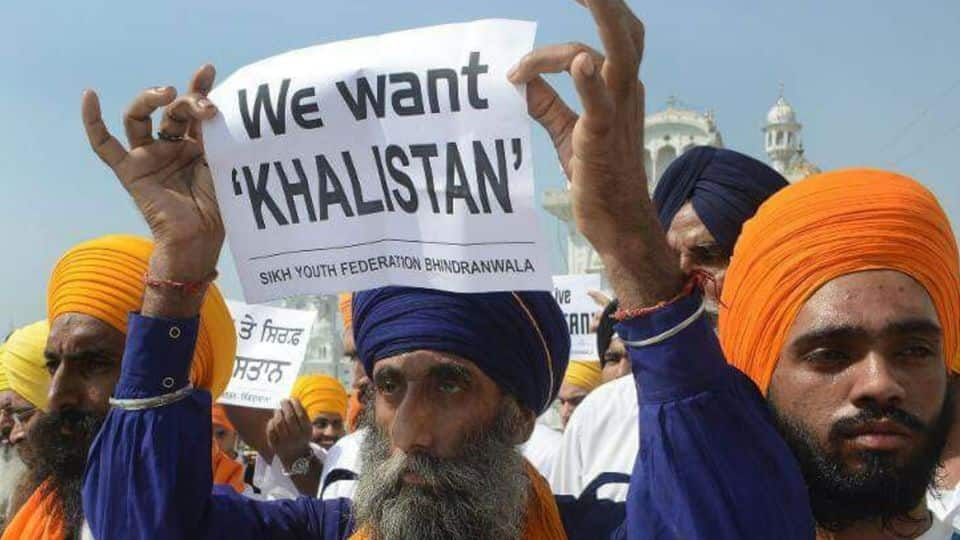
Radical Sikhs put forth their demands before Indian government
What's the story
Radical Sikh elements have allegedly found a politically-conducive environment to revive the Khalistan movement in Canada, North American and European countries. To contain this hostile propaganda, the Indian government has been clandestinely holding talks with them since 2015. Now, as part of this agenda, the Sikhs groups have put forth three main demands. What are these demands? Read on to know.
Beginning
First off, how did the inception of the talks happen?
Incidentally, these talks began in 2015. Contact was established through Sikh Human Rights Group's director Jasdev Singh Rai. As interlocutor Rai and about 30 Sikh leaders met PM Modi during his London visit. The Sikh groups put forth two "preliminary" steps to gauge government's sincerity: to take radical Sikhs off the "blacklist," which bars them from entering India, and release about 20 political prisoners.
Talks
Subsequently, how have the talks progressed?
After establishing contact with UK Sikh-based groups, the government hoped to engage with Canadian Sikhs. However, when BJP general secretary Ram Madhav reached Toronto in 2016, he received a cold shoulder. Rai was denied Electronic Travel Authorization by Canada; Canadian Sikh groups refused to meet Madhav in the interlocutor's absence. Despite this setback, Rai visited Indian officials in January to take forward the process.
Demands
Now, what are the demands put forth by Sikh radicals?
Meanwhile, Sikh groups want an apology from Modi to Sikhs worldwide for Operation Blue Star, the armed exercise that flushed out Khalistani militants from the Golden Temple. They want government to recognize the Akal Takht and Harmandar Sahib's supremacy, giving them status akin to Vatican so that Sikhs abroad can have a say. Finally, they want "open ended" talks on the 1984 anti-Sikh riots.
Reaction
How has the government reacted to these demands?
Regarding the apology, government reminded that former PM Manmohan Singh had apologized in Parliament in 2011 for the 1984-Sikh riots. But, Sikhs insisted that was for Indian Sikhs. Concerning the special status, this demand might require constitutional amendments to allow non-Indian citizens to engage with an Indian institution. This demand allows them to choose the Akal Takht's Jathedar, a seat of power for Sikhs.
Significance
So, what's the significance of these talks?
Separately, government has considerably reduced the "blacklist," evident from convicted Khalistani terrorist Jaspal Atwal's visit to India, coinciding with Canadian PM's visit. Several political prisoners, excluding 17 high-profile ones, have been released. Anyway, Khalistani sentiment's revival might not become a bloody insurgency as it lacks large-scale public support. But, managing the radical groups' political clout, while not appearing harsh, will be government's big challenge.